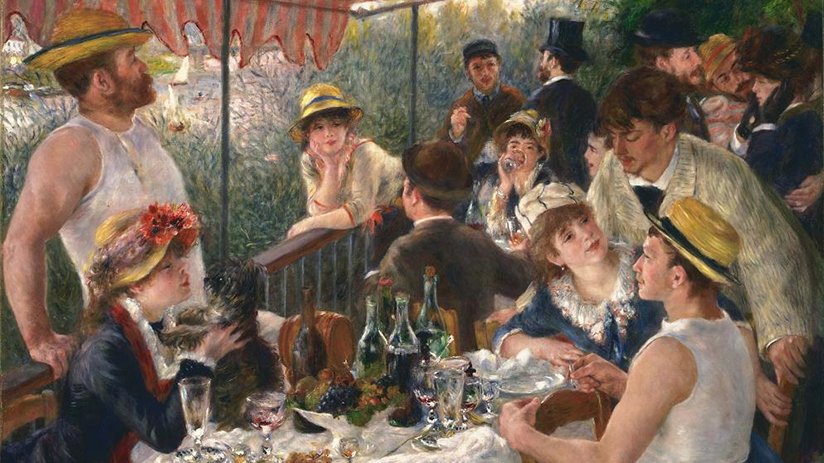
-
HOME
-
WHAT IS STANDOur Mission Our Values Our Help Contact
-
WHAT WE FIGHT FORReligious Freedom Religious Literacy Equality & Human Rights Inclusion & Respect Free Speech Responsible Journalism Corporate Accountability
-
RESOURCESExpert Studies Landmark Decisions White Papers FAQs David Miscavige Religious Freedom Resource Center Freedom of Religion & Human Rights Topic Index Priest-Penitent Privilege Islamophobia
-
HATE MONITORBiased Media Propagandists Hatemongers False Experts Hate Monitor Blog
-
NEWSROOMNews Media Watch Videos Blog
-
TAKE ACTIONCombat Hate & Discrimination Champion Freedom of Religion Demand Accountability
What Bagels and Arithmetic Have to Do With Tolerance
I was living in New York City in the late 1980s and had been studying Scientology for a couple of years. In it, I had routinely learned new things, gained tools of rare practicality and of course wanted to share these with others. I had a friend, whom I shall call John for the sake of this article. John was not a Scientologist and was typical of the skeptics who seemed to surround me in those early years of discovery. I remember John injuring himself, something not too serious—a burn or a bruise. I offered to give him a Scientology “assist” to help him recover more rapidly from the injury. And then the fireworks began.

Perhaps it was reticence or a lack of confidence in my young self that John seized upon, but his reaction was instant. He jumped on my offer with the fervor of an offended politician. Out came negative media depictions and the pronouncement that they (Scientology) requested donations (which all churches do BTW) and so had to be a sham. Finally, to put a cap on it all, he looked at me solemnly and said “I’m a Catholic…” as if to insinuate that any contact with me would contaminate his religion. I was rendered momentarily speechless and the subject was dropped. We later went our separate ways.
In the intervening years, I have had a few other “John” moments—times where I’ve tried to help friends or family with tools that had immeasurably enriched my own life, but for some odd reason there existed this broad chasm of distrust of the unknown. Perhaps they had been let down with the promise of help too many times before to think that my suggestion would be anything other than another betrayal. I don’t know. But I never gave up trying to help people with the knowledge and ability gained from my now 38 years in Scientology. And I’ve succeeded most of the time.
In a world fraught with distrust and hostility, sometimes help is hard to give. But that doesn’t mean one shouldn’t try to help others and be open to receiving real help from them, too.
Recently, thinking back on my encounter with John, I had a “treppenwitz.” It’s the realization of a reply you could or should have given at the time but which only comes to you after the moment has passed. And on the stage of my mind I replayed that long-ago drama:
John (indignantly): I’m a Catholic.
Me (patiently): Well, alright. Have you ever eaten a bagel?
John (eyebrow raised): Yes, they’re delicious. So?
Me: Well, bagels were invented by Jews. Does that make you a Jew?
John (suspiciously): No.
Me (forging ahead): So, do you do any arithmetic?
John: Yes…
Me: Well then, you’re using Arabic numbers which are of Hindu derivation and were refined and spread to Europe by Muslim scholars. Does that make you Hindu or Muslim?
John (sarcastically): No, it just makes me smart.
Me: My point exactly! If something works, you should use it.
John: Oh. So you’re not trying to convert me?
Me: No, silly. I’m just trying to help you.
In my mind, John finally got his assist. But it made me wonder about other common things we got from religion. And I found a treasure trove. For example, the roots of modern printing originated in Buddhism, with an imperial decree in 593 AD from the emperor of China to have Buddhist images and scriptures printed.
From Islam came such diverse innovations as algebra, the toothbrush, the guitar, coffee and hospitals.
The bagel we love so much was reportedly created in 1683 by a Jewish baker in Vienna to honor the victory of a king.
Innovations we got from Jewish scientists include the theory of relativity (Albert Einstein), stainless steel (Hans Goldschmidt), and vaccines against cholera and bubonic plague (Waldemar Haffkine). Other groundbreaking scientists who happened to be Christians were Galileo and Kepler (astronomy), Sir Francis Bacon (the scientific method) and Isaac Newton (the laws of gravity).
The list goes on (I am immediately reminded of the beautiful Amish gazebo sitting in my parents’ yard). These are just a few. The study of world traditions is fascinating and goes back as far as the recorded history of Man. And there is always a relationship between the beliefs of men and their innovations.
Which brings me back to the point of my little treppenwitz: help and tolerance. In a world fraught with distrust and hostility, sometimes help is hard to give. But that doesn’t mean one shouldn’t try to help others and be open to receiving real help from them, too. And isn’t that really what tolerance is: the willingness to give and receive help—from anyone? As L. Ron Hubbard wrote in his essay “What is Greatness?”: “The real lesson is to learn to love.”
Love, help and tolerance are all virtues rooted in a long tradition of religion and philosophy. Tolerance and the willingness to help are the keys to smoothing a world in conflict.
Think about that the next time you’re brushing your teeth or eating a bagel.









